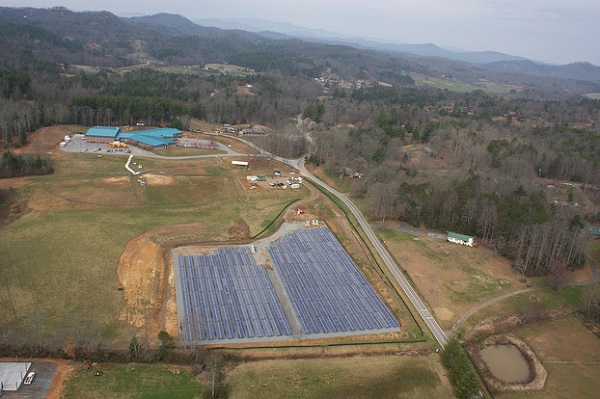Maybe state renewable portfolio standards aren’t quite so fragile after all. On Wednesday in North Carolina, an RPS thought to be among the most vulnerable withstood attack.
A broad assault on these laws, which operate uniquely but in general terms require utilities to source a growing amount of renewable energy, is being waged by thoughtful free market devotees or ruthless corporate interests, one or the other. (You can decide which; just know that the American Legislative Exchange Council has been right in the middle of it all in most states, as it was in North Carolina, along with the Heartland Institute, Grover Norquist, the John Locke Foundation and others, all with fossil fuel backing, according to the Center for Media and Democracy’s PR Watch.)

Remarkably, the bill to gut the RPS failed even to get out of the committee chaired by its sponsor. With six Republicans voting against it, the tally in the Committee on Public Utilities and Energy was a resounding 18-13 against moving the bill forward.
The anti-RPS folks were aghast. The News & Observer quoted Dallas Woodhouse, North Carolina director for the anti-tax, anti-government Americans for Prosperity, thusly: “This was a horrible vote by Republicans, and they need to be held accountable. And that’s all I’m going to say.”
“The vote’s outcome and the fact that it occurred in the Committee chaired by the bill’s own sponsor, Chairman Mike Hager, not only helps to secure a path forward for continued economic development in the renewable energy sector, it also showed the strength of the voices from across the state that spoke out against the misguided effort to have North Carolina turn away from a promising clean energy future,” the North Carolina Sustainable Energy Association said in a statement.
Last October, the NCSEA reported in its 2012 NC Clean Energy Industries Census that “the clean energy sector is a growing economic force in North Carolina that conservatively contributes over $3.7 billion in revenue and more than 15,200 full-time equivalent jobs directly from activities in clean energy.”
Indeed, the sense, even among many Republicans, that to kill the RPS would be shooting North Carolina’s economy in the foot was a key factor in turning expected supporters against the measure. Again from the News & Observer:
“It was based off local issues back home,” Rep. Tim Moore of Cleveland County, who also chairs the powerful House Rules Committee, said after the vote. “I would have had a difficult time talking to a CEO who just brought 300 jobs to Cleveland County [and telling him] that I’m going to vote to eliminate this program that justified their investment.”
The funny thing is, the North Carolina RPS is quite modest, requiring utilities to source just 3 percent of their retail electricity sales from renewables this year, rising gradually to 12.5 percent by 2021 (compare that to California, where investor-owned utilities are at 20 percent now, and must hit 33 percent by 2020). But it’s better than nothing, and a defeat would have emboldened renewable energy opponents, no doubt. Instead, they suffered a stinging loss, just as they had in Kansas last month.